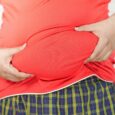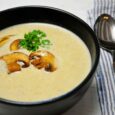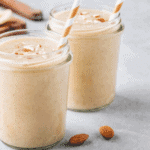General Guideline for Breath Test Preparation
This outlines breath test preparation procedures. Getting ready for your breath test may take up to 4 weeks, depending on your health and medications. Following the breath test preparation diet is important to reduce the level of bacterial activity in your gut at the start of breath testing. This increases that chances of accurate test results.
Following these general breath test preparation instructions is VERY important for accurate results. You can download the general guidelines HERE
If you (the patient) are not able to comply with these guidelines for testing, then you may not be a candidate for a breath testing.

IMPORTANT
The breath test diet requires a period of food restriction for a minimum of 24-48 hours.
The diet preparation is the same, regardless of the substrate being tested. This means if you are being tested for lactose intolerance and fructose malabsorption you need to follow the same instructions.
If you are a diabetic or have specific dietary restrictions please speak to your referring practitioner, or contact us.
Before planning your dietary preparation, you must:
- Wait at least FOUR WEEKS after oral or intravenous (IV) antibiotics.
- Wait at least TWO WEEKS after a colonoscopy, colonoscopy prep, barium study, colonic therapy, an enema or an episode of runny diarrhoea.
- STOP any herbal antimicrobials, probiotics and osmotic laxatives (ending in “-ol” or “-ose”) ONE WEEK before the test.
- ON THE DAY OF THE TEST, withhold any non-essential medication until after the test is finished.
- If you are uncertain if something will affect the test, AVOID it or consult your physician BEFORE starting the test.
There are two diet options. You must choose ONE of these and follow it closely. Failure to do so may result in a delay in commencing your test, or inaccurate results.
- A very restricted one-day low residue diet.
- A two-day low FODMAP diet
Thus you must commence dietary restrictions between 24 and 48 hours before doing the test, depending on the diet. This is at your preference, or that of your referring practitioner. If you are not sure, please contact your practitioner, or give us a call to discuss.
THE ONE-DAY LOW-RESIDUE DIET
For the one-day diet, a minimum 24-hour preparation is required before starting the breath test.
For example, if you booked a test at 09:00m on Monday, you will:
- Start the low-residue diet at 09:00am on Sunday (one day before your test)
- Have nothing to eat after 09:00pm the night before your test
- On the morning of your test, get up by 08:00am at latest (you need to be up for one hour before starting the test)
- Brush your teeth as soon as you wakes up (at least an hour before the test) and rinse your mouth with water.
- Have a drink of water.
- No food, vaping or smoking in this hour, nor at any time until the test is finished.
- No vigorous exercise
- We recommend going for a gentle walk during this hour.
During the one-day breath test diet preparation period you may consume ONLY:
• Chicken, turkey, fish, lean beef or lamb. Avoid fatty cuts and avoid pork. Baked or broiled or gently fried in a small amount of oil
• Salt and pepper – no other seasonings
• Plain steamed white rice (not Basmati – use plain or jasmine rice). Rice is best cooked fresh for each meal – reheated rice becomes a resistant starch and may interfere with your test results.
• Eggs – cooked any way, without milk of any kind.
• White bread only – preferably a quality sourdough. Alternatively, a white rice bread, made without potato starch or dairy products.
• Small amounts of hard cheese such as parmesan or pecorino.
• Small amounts of butter, gheee or oil.
• Weak black tea or coffee, or water. No sugar (stevia is OK)
If you are vegetarian or vegan, you can:
- Have TOFU for protein, or
- Follow the low FODMAP diet for two days.
FRUITS, VEGETABLES, NUTS, SEEDS, etc ARE NOT ALLOWED
DO NOT eat any of the allowed foods if you react to them or exclude them for other reasons.
DO NOT eat or drink anything, except water in the 12 hours before the breath test.
TWO DAY, LOW FODMAP DIET
If following this guide, a minimum 48-hour diet preparation is required before you start the breath test.
For example, if you plant to do a breath test at 09:00am on Monday, you will:
- Start the low-FODMAP diet at 09:00am on Saturday (48 hours before the test)
- Have nothing to eat after 09:00pm the night before your scheduled test (Sunday)
- Start the low-residue diet at 09:00am on Sunday (one day before your test)
- On the morning of your test, get up by 08:00am at latest (you need to be up for one hour before starting the test)
- Brush your teeth as soon as you wakes up (at least an hour before the test) and rinse your mouth with water.
- Have a drink of water.
- No food, vaping or smoking in this hour, nor at any time until the test is finished.
- No vigorous exercise
- We recommend going for a gentle walk during this hour.
A wide range of foods is permitted.
Please follow this LowFODMAP-Diet-for-Breath-testing guideline.
Our guideline is based on that developed by Monash University.
If a food is not on the list you downloaded above, please check with us before consuming it.
Additives, sweeteners and non-sugar sweeteners are generally not allowed.
On The Morning of Your Breath Test (Applies to Everyone)
The day of your test, you need to follow these instructions:
- Get up at least ONE HOUR before starting the test.
- Brush your teeth as soon as you wake up. Rinse with water.
- No food, vaping or smoking in this hour (nor at any time until the end of the test).
- No vigorous exercise
- We recommend going for a gentle walk in this hour.
- If doing the test at home, prepare your breath test drink and labels. IMPORTANT: Do not pre-label your test tubes.











